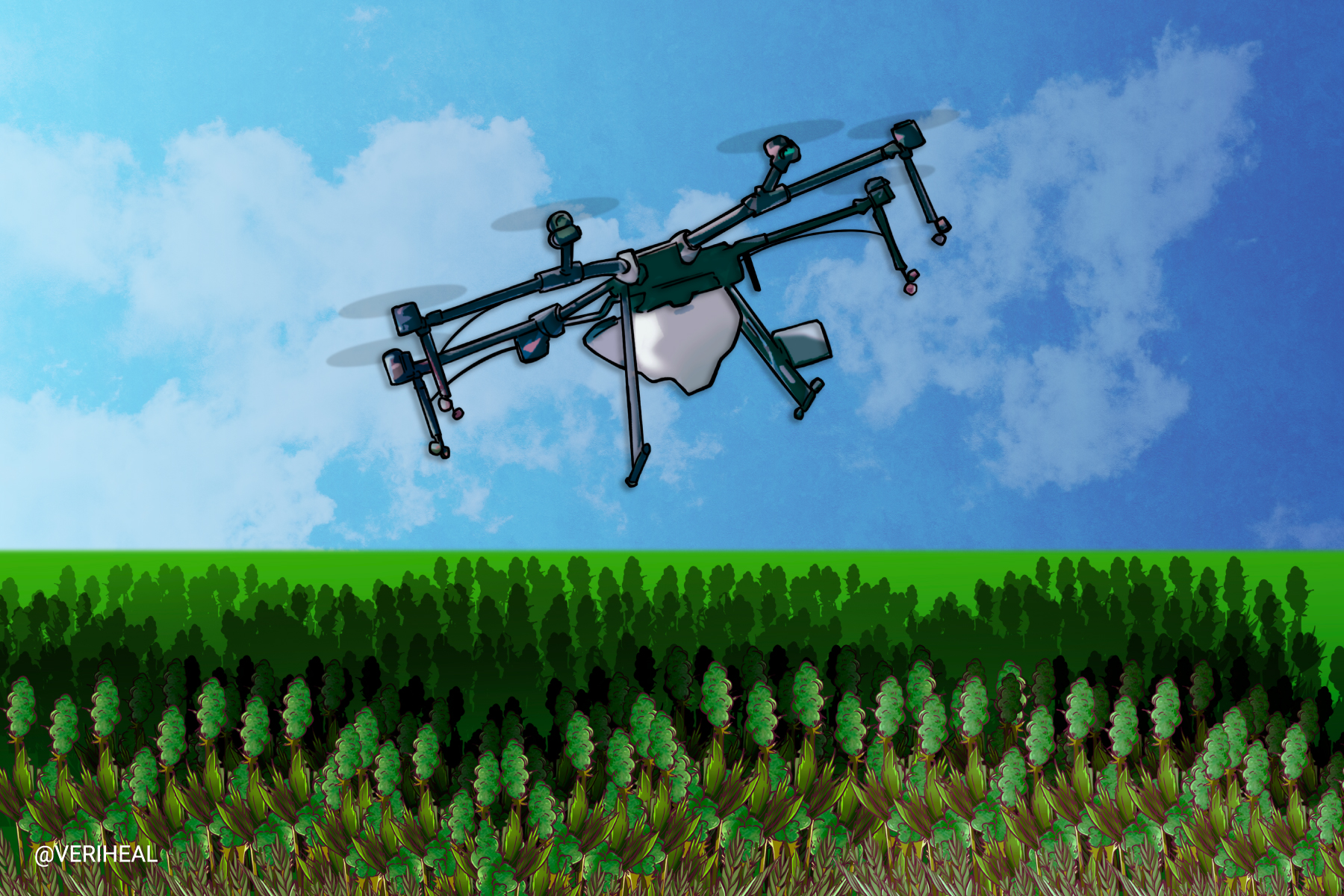As commercial cannabis cultivators try to keep up with intense market demand, efficient business solutions are being sought out in the form of drone technology. In fact, the cannabis industry and the drone market are melding into a collaboration made in heaven.
Last year, U.S. sales of consumer drones surpassed $1.25 billion. With U.S. drone statistics revealing that approximately 15% of Americans have flown a drone, it’s not surprising that the number of certified U.S. drone pilots is expected to top 422,000 this year. Analysts at Statista predict that the market size for drones in smart agriculture will soar from $1.2 billion in 2019 to $4.8 billion by 2024.
These innovative solutions are capturing the attention of cannabis cultivators that manage both indoor and outdoor farms. The results? More efficient business operations, reduced carbon footprints, and healthier yields.
Understanding Drone Technology
Nowadays, if you visit a coastal region or venture to a popular tourist spot, there’s a good chance you’ll see a drone whizzing through the skies. This miniature type of aircraft operates without a human pilot (if it did, the pilot would have to be super small) and functions by means of a ground-based controller.
Officially known as an “unmanned aerial vehicle (UAV)” a drone is a flying robot that can explore the globe with the utmost precision. As of March 2021, the total registered number of small hobbyist drones in the United States totaled 492,500 units. Despite their recent rise in popularity, drones were originally manufactured for use in aerospace and military applications.
Why You Should Get Your Medical Marijuana Card
Veriheal has satisfied millions of patients nationwide by giving them access to these benefits
- Larger purchase limits
- Peace of mind
- Enhanced legal protection
- Access to higher potency strains
- Save up to 25% on cannabis purchases
- Skip the line at the dispensary
Let’s Explore the Benefits for Cannabis Cultivation
When drones are adopted in agriculture, cannabis farmers can discover more efficient ways to collect data and conduct specific tasks. According to Grand View Research, the global cannabis cultivation market size was valued at USD $123.9 billion in 2019. Between the years 2020 and 2027, this segment of the cannabis market is anticipated to inflate at a compound annual growth rate (CAGR) of 14.3%
Cannabis drone market growth is being driven by sweeping legislation, emerging research, and increasing support for legalization – 91% of U.S. adults say that cannabis should be legal for medical and recreational use. Something else that is acting as a catalyst for growth in drone technology, which can be integrated into a cannabis cultivation facility for better overall farming.
From land scouting, surveying, and photography to seed sowing, fertilizer application, and pest control, there are plenty of ways in which drones can be used for cannabis cultivation. Examples of the main appeals that entice cannabis cultivators to explore the drone market include:
- Less Carbon – Growing an ounce of cannabis inside a greenhouse can produce carbon pollution equivalent to that caused by driving 370 miles! Fortunately, the use of drones at outdoor cultivation sites can assist in combating climate change, as well as reducing plant and air contamination. Agricultural workers who adjust their cannabis farming practices with drones – a method proven to reduce carbon footprint – can even receive a carbon credit for their eco-conscious work.
- Improved Task Performance and Live Precision – The simplicity that drones offer in terms of maintaining outdoor cannabis cultivation operations is another main appeal for farmers. Drone precision agriculture can be relied on to swiftly survey vast expanses of farmland, document crop health, and spray essential nutrients, as well as analyze livestock, soil, and plant height with the utmost accuracy.
- Off-peak Working Opportunities – Employing agricultural workers to tend to cannabis plants around the clock can be expensive and inconvenient. Thankfully, due to the sophisticated nature of drone technology, various aspects of farm management can be dealt with during off-peak hours.
- Reduced soil compression – If the soil on your cannabis farm is compacted, your plants will not grow to their full potential. Soil compression can reduce crop yields by negatively impacting water uptake, nutrient uptake, crop emergence, and root penetration. On the plus side, drones are displacing traditional cannabis-growing methods for their ability to analyze farming.
- Cost-savings – It goes without saying that the above benefits of using drones in cannabis farming translate to long-term money savings. Company investments can go much further when resources are maximized, labor costs reduced, and plant quality enhanced. In comparison with traditional methods of aerial or land surveyance, drones offer a budget-friendly option.
Things to Consider
Utilizing drones to accomplish precision agriculture can help farmers to access a vegetative analysis of plant health, potential stress factors, sizing, and stand count. However, it should be noted that the rules and regulations pertaining to commercial drone use are still being hashed out by the Federal Aviation Administration (FAA). FAA exemptions have been permitted by manufacturers and building contractors, but drone use in agriculture is not yet mainstream.
Whether you want your cannabis grow operation to function more efficiently, reduce cultivation overheads, amplify plant quality, or better track seasonal growing tactics, it is essential that you perform adequate research before you implement drone-based aerial intelligence in this area of agriculture.
Author, Share & Comments















